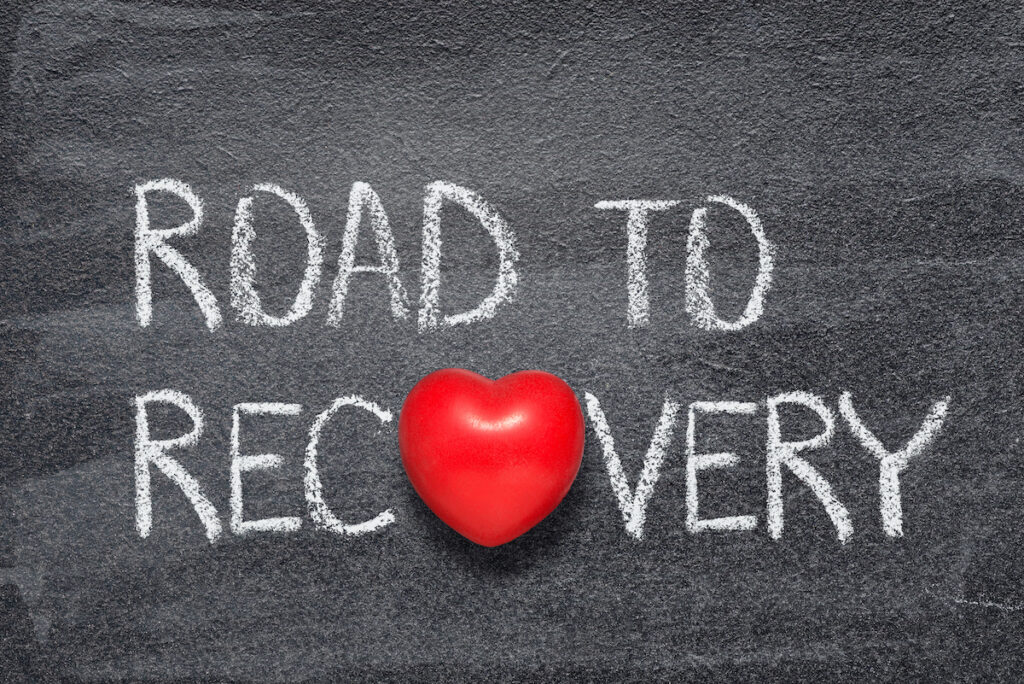
Recovery is a popular topic, perhaps because of its subjectivity and opacity. Most people think that simply relieving symptoms is a good way to say that someone is “better” or “recovered”. However, everything is relative and recovery is different for everyone. The notion of feeling “better” raises a contradiction – better or worse – and we all exist on a particular niche of this spectrum. Recovery is not about being “better”, but about trying to traverse this spectrum, navigating all the contradictions which beset our life journeys.
Over the last decade, there have been convincing narratives about recovery in research, creating a fruitful debate both on the definition of recovery and its denoted narrative. Previous Mental Elf blogs by Alison Faulkner and Simon Bradstreet provide excellent critiques on the topic. However, there is apparently a literature gap in this research, since it does not consider how recovery is perceived by children and young people.
In this study, Law and colleagues (2020) are responding to this aperture. They aimed to tease out what recovery means, specifically for young people. Their paper examines the concept of recovery from the perspective of young people who are 25 years old or younger and have experienced mental health difficulties. The authors discuss how recovery is defined in literature using a conceptual framework, and how interpretations of recovery differ amongst adults, young adults and young people. Their objective is to:
develop a youth specific conceptualisation of mental health recovery, as well as understanding facilitators and barriers by interviewing a sample of young people with a range of ages and mental health difficulties.

How is mental health recovery perceived by children and young adults?
Methods
The authors conducted a qualitative study and collected data through semi-structured interviews. They interviewed 23 young people aged 14-25 (18 females, 4 males, 1 non-binary), who were in treatment for mental health difficulties across 2 different NHS Trusts in the UK. The consequent study becomes a “coproduced piece of work”, when both participant and researcher play an active role in what is a qualitative, reflexive investigation.
Participants were recruited through convenience sampling from Norfolk and Suffolk NHS Trust, and Greater Manchester NHS Trust. The upper age limit of 25 was decided because it reflected the upper age limit for young people’s services in the recruiting sites. Participants were given information sheets and consent forms. Where appropriate, consent forms were given to parents or guardians.
Topics such as participants’ history of mental health difficulties and accessing services, examining the word recovery in a general sense, and discussing participants’ personal experiences of recovery (what has helped, what has been detrimental) were discussed in detail. All interviews were recorded into transcripts, which researchers pored over; seeking patterns and common themes. The process of reflexivity was important, as researchers tried to “bracket our own beliefs and preconceptions” about recovery, whilst realising that subjectivity is always going to have a part to play in qualitative research.
Results
The results suggested that young people sometimes have paradoxical understandings and beliefs about what recovery means in mental health. For example, recovery is seen as having ups and downs, and also “being stable”. Recovery is about reducing symptoms, or accepting and coping with symptoms.
Results draw up a useful reflection about the meaning of recovery to young people. It is important to understand that “recovery is individualised and personal. […] everyone has a different recovery journey.” Furthermore, an approach to recovery (in any setting) needs to be personalised and individual.
Participants expressed that recovery is an ongoing non-linear process: “I think it’s a journey, I don’t think it’s a destination.” (Jessica, 25, quoted in Law et al. 2020)
This concept of recovery journey is perpetual in these results. And yet, some participants find this idea overwhelming and unhelpful. Some participants did not feel that recovery was possible or achievable (for them). We see that sometimes, if not collaboratively defined or individualised, recovery was not a helpful word.
The paper also discusses the awareness of others’ views of recovery. The people around young people: parents, siblings, clinicians have different ideas about what recovery is or should be. For example, the idea of “getting back to normal” (by a parent, say) can be really off-putting. Who wants to be normal, anyway?
We see that young people are “embedded within an ecological system” of family, health services and more. All these individuals may have differing, sometimes conflicting notions of recovery.
The article discusses a number of recovery goals, which emerged from the interviews. These goals are at times contradictory. Participants described how they fluctuate between them, for example, wanting to be independent and also supported; becoming the best version of themselves, whilst not knowing who or what that is. The article emphasises the polarisation in young people’s descriptions of recovery goals.

Young people felt that recovery is an ongoing non-linear process: “I think it’s a journey, I don’t think it’s a destination.”
Conclusions
The study concludes that young people understand recovery as:
an individualised ongoing journey towards stability.
Although this is similar to how adults’ perceive recovery, the researchers argue that their work with young people is different because more conflict arises.
There are also more mixed views about the term recovery. Parents and professionals might be defining recovery very differently to the young person. As mentioned by the authors themselves:
It is clear that each young person’s individual psychosocial experiences have a huge impact on their understanding of recovery.
This article demonstrates that there are some key differences in young people’s conceptualisations of recovery in mental health, compared with adult service users. Adults’ focus on recovery is to live well despite ongoing symptoms (Pitt et al., 2007; Ralph, 2000; Ridgeway, 2001). For young people here, recovery is about reducing symptoms. Young people have “more dynamic and fluctuating views of recovery” than adults.

Adults’ evidence-based focus on recovery is to live well despite ongoing symptoms, while for young people in this study recovery was about reducing symptoms and was described as “an individualised ongoing journey towards stability.”
Strengths and limitations
The authors call this piece of research “a key step forward in understanding recovery in youth mental health” as – they say – it is the first study with young people (majority under the age of 18). This is clearly an important research topic. Similar pieces of research about a youth mental health recovery model exist (such as Mary Kelly’s ‘A theory of youth mental health recovery’ or Sean Rayner, Monica Thiekling, Richard Lough’s ‘A new paradigm of youth recovery’). It would be interesting to compare and contrast these approaches to recovery for young people, in terms of building a qualitative, mutualised, coproduced care model.
Limitations perceived by the authors are that some young people had never heard of the term “recovery” before this study. The authors say that future research could examine the impact of age and developmental stage on recovery goals and conceptualisations, and also explore the impact of culture, ethnicity and stage of recovery on youth mental health.
These thoughts and propositions for future research are valid, and highlight gaps in this article. It is important to think about the context of any person’s grasp of recovery, which will differ in every case. This paper points towards such a discussion, when the concept of recovery is deconstructed in what seems a differential, Derridean sense. French philosopher Jacques Derrida used deconstruction as a method to break apart the contradictory, hierarchical elements of the real – particularly in language (Derrida 2006; Derrida 2011). This seems relevant to the article, when recovery is “conceptually mediated” as a construct in language, and dependent on polarised or contradictory elements. Recovery is deconstructed as something that is changeable and dependent on each situation.
How do we grasp hold of (or conceptualise) these differentials, then? This article draws up a very interesting analysis about young people’s versions of recovery, drawn up by engaging interviews which reveal the “facilitators and barriers to recovery” (Law et al. 2020).

Recovery is deconstructed as something that is changeable and dependent on each situation.
Implications for practice
The authors discuss the clinical implications of their study, which they say is based on their incorporation of developmental considerations into the recovery model, specifically relevant for young people with mental health difficulties. The article emphasises the need to work collaboratively with young people in a way that helps them be independent, but also supported, working on resilience as well as acceptance, and coping when symptom reduction is more difficult. Since some young people find the recovery overwhelming, the authors state that it is important to:
[…] collaboratively define and understand what recovery means to each young person and address any concerns or mixed feelings.
There are further implications for practice in relation to services working with young people. The authors advise clinicians to “embrace dynamic and fluctuating understandings of recovery”, working with flux and ambivalence, when young people are continually developing and adapting to their situation. It is important to support young people as they develop their identities, beyond their mental health difficulties.
In my own experience of recovering from 20 years of mental illness, recovery means coming to terms with the paradox or contradiction inherent in existence; it is a daily commitment; it is about having a working relationship with yourself. Everyone is different, so recovery needs to be individualised according to each of our situations and lives. However, empathy and connectedness (despite or because of our difference) can provide a grounding base for compassion and healing, for all.
Taking this article further, it would be useful to examine a wider spectrum of participants, considering their ethnic, cultural backgrounds and their stage of recovery. It would also be interesting to expand the philosophical aspects of this study, by examining further the concept of recovery, and its impact on language, culture, healthcare (pharmacology, therapy, treatment regimes and models), and participants’ life or developmental stage – these factors build the grounding threshold on which recovery can take place.

Everyone is different, so recovery needs to be individualised according to each of our situations and lives. However, empathy and connectedness (despite or because of our difference) can provide a grounding base for compassion and healing, for all.
Statement of interests
None.
Links
Primary paper
Law H, Gee G, Dehmahdi N, Carney R, Jackson C, Wheeler R, Carroll B, Tully S & Clarke T (2020): What does recovery mean to young people with mental health difficulties? – “It’s not this magical unspoken thing, it’s just recovery”. Journal of Mental Health.
Other references
Derrida, J. (2001) Writing and Difference, London: Routledge.
Derrida, J. (2016) Of Grammatology, Baltimore: Johns Hopkins University Press.
Kelly M, Coughlan B. (2019). A theory of youth mental health recovery from a parental perspective. Child and Adolescent Mental Health, 24, 161-169.
Rayner S, Thielking M, Lough R. (2018) ‘A new paradigm of youth recovery: Implications for youth mental health service provision.’ Australian Journal of Psychology.
Pitt, L. & Kilbride, M. & Nothard, S. & Welford, Mary & Morrison, A. (2007). Researching recovery from psychosis: A user-led project. Psychiatric Bulletin. 31. 55-60. 10.1192/pb.31.2.55.
Ralph, R. (2000) Recovery, Psychiatric Rehabilitation Skills, 4:3, 480-517.
Ridgway, P. (2001). ReStorying psychiatric disability: Learning from first person recovery narratives. Psychiatric Rehabilitation Journal, 24(4), 335–343.
Photo credits
- Photo by Dimitri Houtteman on Unsplash
- Photo by Vlad Bagacian on Unsplash
- Photo by Michael Benz on Unsplash
- Photo by Priscilla Du Preez on Unsplash
